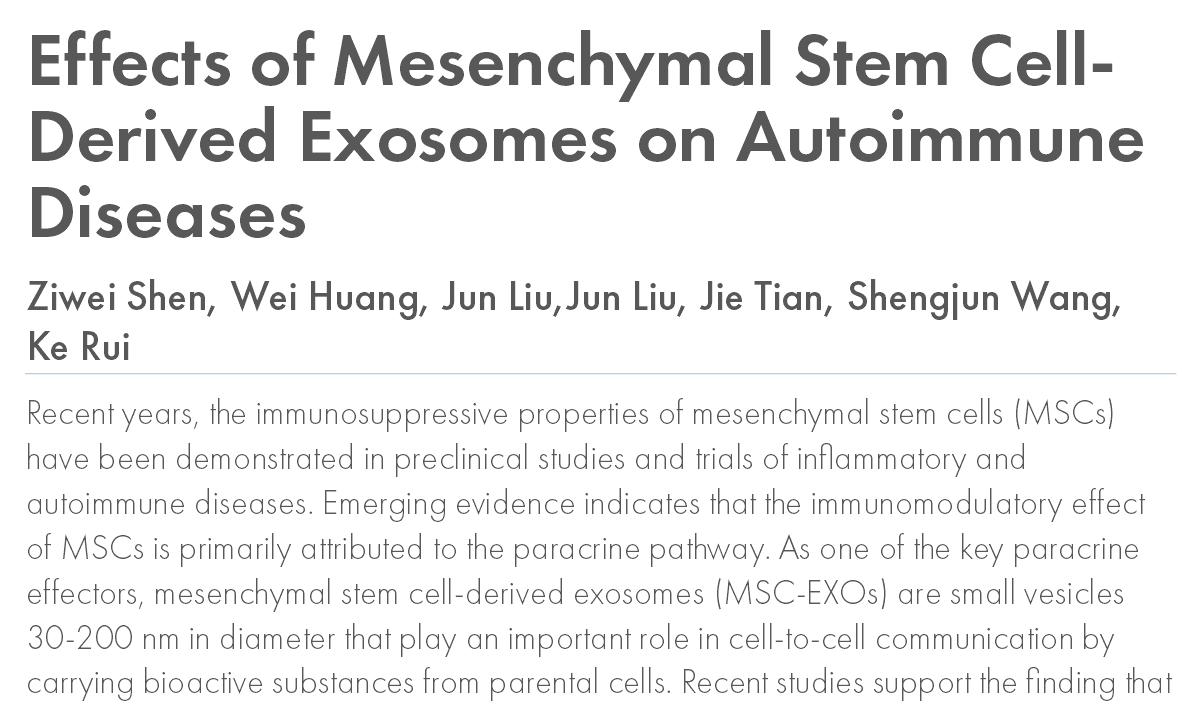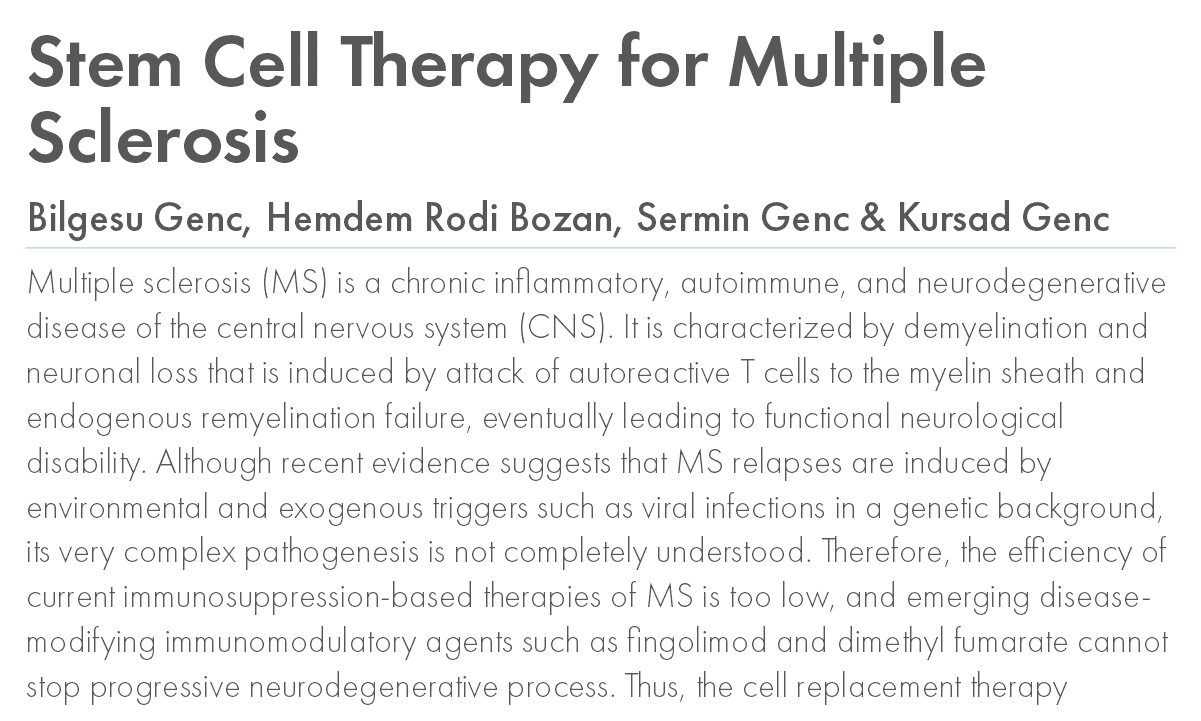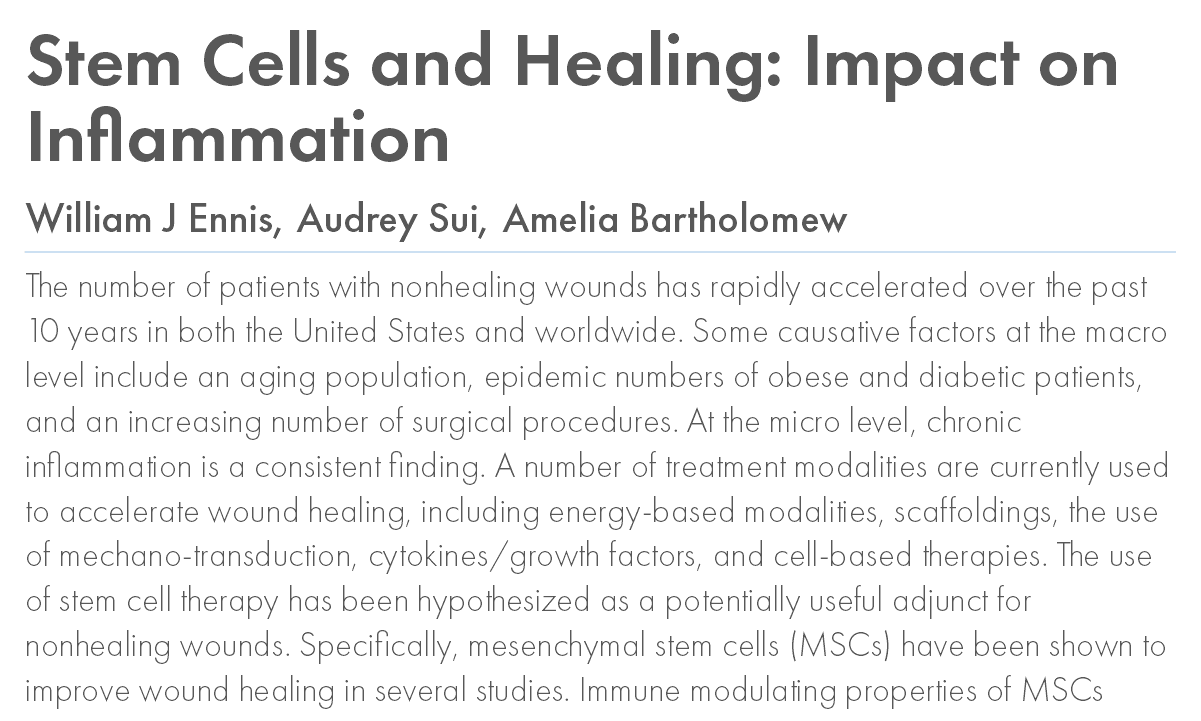U-MSC and Derived Exosomes Treatments
The Role of Regenerative Medicine in Autoimmune Disorders
Regenerative medicine therapies offer an option for patientes dealing with the disabling effects of autoimmune conditions.
Struggling with an Autoimmune Disorder?
When the immune system becomes dysregulated, it can mistakenly target the body’s tissues, causing persistent inflammation and pain. This not only leads to discomfort but can damage the body over time. Autoimmune disorders are complex, arising from genetic, environmental, and immunological factors, and in most cases they require different treatment approaches.
Our Umbilical Cord Mesenchymal Stem Cell (U-MSC) treatments are designed to bring your body back into balance by modulating the immune response through scientifically proven mechanisms:

Reducing Inflammation
U-MSCs lower the production of pro-inflammatory cytokines, reducing the signals that trigger inflammation.
Immune Regulation
U-MSCs encourage the growth of regulatory T-cells, key immune cells that help keep the immune response in check.
Enhancing Healing
Exosomes deliver crucial signals to repair damaged tissues and support the body’s natural healing processes.
Autoimmune Conditions Responsive to U-MSC Stem Cell Therapies
We utilize U-MSC and exosomes therapies to manage a range of autoimmune conditions. Conditions we treat include:
Rheumatoid Arthritis
Systemic Lupus Erythematosus
Crohn's Disease
Multiple Sclerosis
Psoriasis
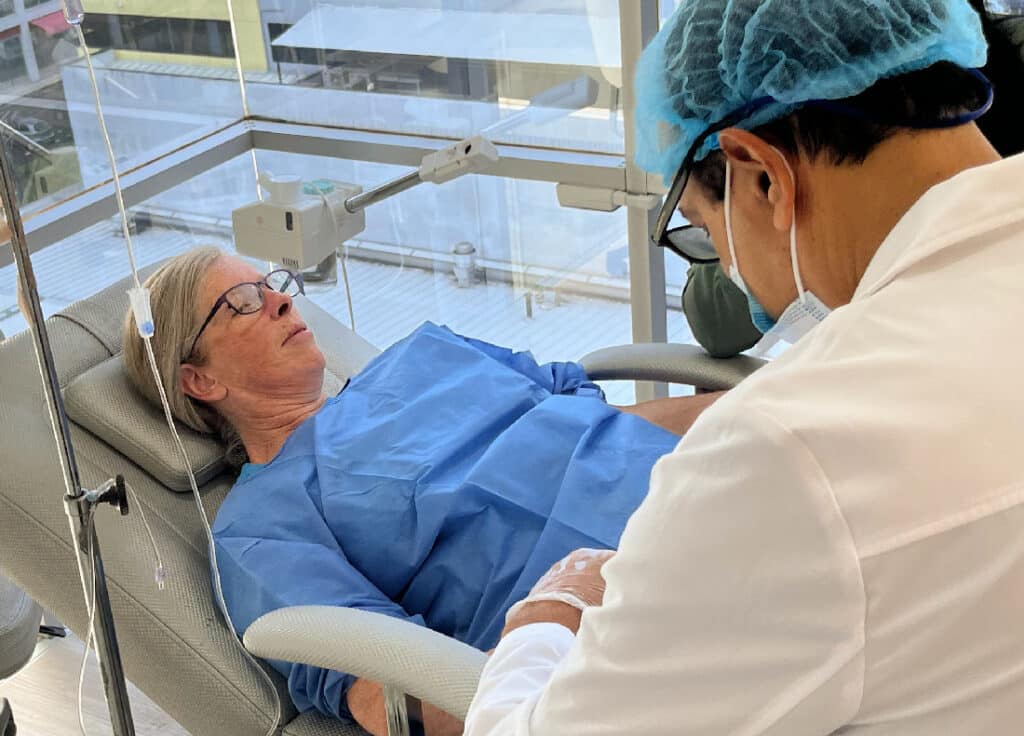
A Future Rooted in Science and Expertise
Our approach to treating autoimmune disorders is built on innovation and a focus on results. We aim to address not just the symptoms of your condition but to support your body’s natural ability to restore balance and improve overall health with U-MSC therapies.
U-MSC
Derived from the umbilical cord, they are capable of differentiating into multiple cell types, supporting tissue regeneration. They offer a treatment approach that addresses the underlying causes of autoimmune disorders by enhancing the body’s natural healing capabilities.
U-MSC Derived Exosomes
Shen, Ziwei; Huang, Wei; Liu, Jun; Tian, Jie; Wang, Shengjun; Rui, Ke
Effects of Mesenchymal Stem Cell-Derived Exosomes on Autoimmune Diseases Journal Article
In: 2021.
@article{nokey,
title = {Effects of Mesenchymal Stem Cell-Derived Exosomes on Autoimmune Diseases},
author = {Ziwei Shen and Wei Huang and Jun Liu and Jie Tian and Shengjun Wang and Ke Rui},
url = {https://doi.org/10.3389/fimmu.2021.749192},
year = {2021},
date = {2021-09-21},
urldate = {2021-09-21},
abstract = {Recent years, the immunosuppressive properties of mesenchymal stem cells (MSCs) have been demonstrated in preclinical studies and trials of inflammatory and autoimmune diseases. Emerging evidence indicates that the immunomodulatory effect of MSCs is primarily attributed to the paracrine pathway. As one of the key paracrine effectors, mesenchymal stem cell-derived exosomes (MSC-EXOs) are small vesicles 30-200 nm in diameter that play an important role in cell-to-cell communication by carrying bioactive substances from parental cells. Recent studies support the finding that MSC-EXOs have an obvious inhibitory effect toward different effector cells involved in the innate and adaptive immune response. Moreover, substantial progress has been made in the treatment of autoimmune diseases, including multiple sclerosis (MS), systemic lupus erythematosus (SLE), type-1 diabetes (T1DM), uveitis, rheumatoid arthritis (RA), and inflammatory bowel disease (IBD). MSC-EXOs are capable of reproducing MSC function and overcoming the limitations of traditional cell therapy. Therefore, using MSC-EXOs instead of MSCs to treat autoimmune diseases appears to be a promising cell-free treatment strategy. In this review, we review the current understanding of MSC-EXOs and discuss the regulatory role of MSC-EXOs on immune cells and its potential application in autoimmune diseases.},
keywords = {},
pubstate = {published},
tppubtype = {article}
}
Shen, Ziwei; Huang, Wei; Liu, Jun; Tian, Jie; Wang, Shengjun; Rui, Ke
Effects of Mesenchymal Stem Cell-Derived Exosomes on Autoimmune Diseases Journal Article
In: 2021.
@article{nokey,
title = {Effects of Mesenchymal Stem Cell-Derived Exosomes on Autoimmune Diseases},
author = {Ziwei Shen and Wei Huang and Jun Liu and Jie Tian and Shengjun Wang and Ke Rui},
url = {https://doi.org/10.3389/fimmu.2021.749192},
year = {2021},
date = {2021-09-21},
urldate = {2021-09-21},
abstract = {Recent years, the immunosuppressive properties of mesenchymal stem cells (MSCs) have been demonstrated in preclinical studies and trials of inflammatory and autoimmune diseases. Emerging evidence indicates that the immunomodulatory effect of MSCs is primarily attributed to the paracrine pathway. As one of the key paracrine effectors, mesenchymal stem cell-derived exosomes (MSC-EXOs) are small vesicles 30-200 nm in diameter that play an important role in cell-to-cell communication by carrying bioactive substances from parental cells. Recent studies support the finding that MSC-EXOs have an obvious inhibitory effect toward different effector cells involved in the innate and adaptive immune response. Moreover, substantial progress has been made in the treatment of autoimmune diseases, including multiple sclerosis (MS), systemic lupus erythematosus (SLE), type-1 diabetes (T1DM), uveitis, rheumatoid arthritis (RA), and inflammatory bowel disease (IBD). MSC-EXOs are capable of reproducing MSC function and overcoming the limitations of traditional cell therapy. Therefore, using MSC-EXOs instead of MSCs to treat autoimmune diseases appears to be a promising cell-free treatment strategy. In this review, we review the current understanding of MSC-EXOs and discuss the regulatory role of MSC-EXOs on immune cells and its potential application in autoimmune diseases.},
keywords = {},
pubstate = {published},
tppubtype = {article}
}
Genc, Bilgesu; Bozan, Hemdem Rodi; Genc, Sermin; Genc, Kursad
Stem Cell Therapy for Multiple Sclerosis Journal Article
In: 2018.
@article{nokey,
title = {Stem Cell Therapy for Multiple Sclerosis},
author = {Bilgesu Genc and Hemdem Rodi Bozan and Sermin Genc and Kursad Genc},
url = {https://dx.doi.org/10.1007/5584_2018_247},
year = {2018},
date = {2018-07-24},
urldate = {2018-07-24},
abstract = {Multiple sclerosis (MS) is a chronic inflammatory, autoimmune, and neurodegenerative disease of the central nervous system (CNS). It is characterized by demyelination and neuronal loss that is induced by attack of autoreactive T cells to the myelin sheath and endogenous remyelination failure, eventually leading to functional neurological disability. Although recent evidence suggests that MS relapses are induced by environmental and exogenous triggers such as viral infections in a genetic background, its very complex pathogenesis is not completely understood. Therefore, the efficiency of current immunosuppression-based therapies of MS is too low, and emerging disease-modifying immunomodulatory agents such as fingolimod and dimethyl fumarate cannot stop progressive neurodegenerative process. Thus, the cell replacement therapy approach that aims to overcome neuronal cell loss and remyelination failure and to increase endogenous myelin repair capacity is considered as an alternative treatment option. A wide variety of preclinical studies, using experimental autoimmune encephalomyelitis model of MS, have recently shown that grafted cells with different origins including mesenchymal stem cells (MSCs), neural precursor and stem cells, and induced-pluripotent stem cells have the ability to repair CNS lesions and to recover functional neurological deficits. The results of ongoing autologous hematopoietic stem cell therapy studies, with the advantage of peripheral administration to the patients, have suggested that cell replacement therapy is also a feasible option for immunomodulatory treatment of MS. In this chapter, we overview cell sources and applications of the stem cell therapy for treatment of MS. We also discuss challenges including those associated with administration route, immune responses to grafted cells, integration of these cells to existing neural circuits, and risk of tumor growth. Finally, future prospects of stem cell therapy for MS are addressed.},
keywords = {},
pubstate = {published},
tppubtype = {article}
}
Ennis, William J.; Sui, Audrey; Bartholomew, Amelia
Stem Cells and Healing: Impact on Inflammation Journal Article
In: 2013.
@article{nokey,
title = {Stem Cells and Healing: Impact on Inflammation},
author = {William J. Ennis and Audrey Sui and Amelia Bartholomew},
url = {https://doi.org/10.1016/j.fsc.2018.06.004},
doi = {https://doi.org/10.1016/j.fsc.2018.06.004},
year = {2013},
date = {2013-09-02},
urldate = {2013-09-02},
abstract = {Multipotent stem cells have paved the way for new applications and deeper understanding in regenerative medicine and the pathophysiology of aging. During skin aging, cumulative photodamage, exhaustion of endogenous stem cell populations, mechanical stress, and increased fibrosis lead to skin with decreased epidermal thickness and compromised dermal integrity. Specific stem cells in the hair follicle create new keratinocytes after activation by defensin peptides, released by neutrophils during wounding. Studies pertaining to defensin peptides' efficacy on skin aging have been published, highlighting their potential as a new therapy for skin rejuvenation.},
keywords = {},
pubstate = {published},
tppubtype = {article}
}
Shen, Ziwei; Huang, Wei; Liu, Jun; Tian, Jie; Wang, Shengjun; Rui, Ke
Effects of Mesenchymal Stem Cell-Derived Exosomes on Autoimmune Diseases Journal Article
In: 2021.
@article{nokey,
title = {Effects of Mesenchymal Stem Cell-Derived Exosomes on Autoimmune Diseases},
author = {Ziwei Shen and Wei Huang and Jun Liu and Jie Tian and Shengjun Wang and Ke Rui},
url = {https://doi.org/10.3389/fimmu.2021.749192},
year = {2021},
date = {2021-09-21},
urldate = {2021-09-21},
abstract = {Recent years, the immunosuppressive properties of mesenchymal stem cells (MSCs) have been demonstrated in preclinical studies and trials of inflammatory and autoimmune diseases. Emerging evidence indicates that the immunomodulatory effect of MSCs is primarily attributed to the paracrine pathway. As one of the key paracrine effectors, mesenchymal stem cell-derived exosomes (MSC-EXOs) are small vesicles 30-200 nm in diameter that play an important role in cell-to-cell communication by carrying bioactive substances from parental cells. Recent studies support the finding that MSC-EXOs have an obvious inhibitory effect toward different effector cells involved in the innate and adaptive immune response. Moreover, substantial progress has been made in the treatment of autoimmune diseases, including multiple sclerosis (MS), systemic lupus erythematosus (SLE), type-1 diabetes (T1DM), uveitis, rheumatoid arthritis (RA), and inflammatory bowel disease (IBD). MSC-EXOs are capable of reproducing MSC function and overcoming the limitations of traditional cell therapy. Therefore, using MSC-EXOs instead of MSCs to treat autoimmune diseases appears to be a promising cell-free treatment strategy. In this review, we review the current understanding of MSC-EXOs and discuss the regulatory role of MSC-EXOs on immune cells and its potential application in autoimmune diseases.},
keywords = {},
pubstate = {published},
tppubtype = {article}
}
Shen, Ziwei; Huang, Wei; Liu, Jun; Tian, Jie; Wang, Shengjun; Rui, Ke
Effects of Mesenchymal Stem Cell-Derived Exosomes on Autoimmune Diseases Journal Article
In: 2021.
@article{nokey,
title = {Effects of Mesenchymal Stem Cell-Derived Exosomes on Autoimmune Diseases},
author = {Ziwei Shen and Wei Huang and Jun Liu and Jie Tian and Shengjun Wang and Ke Rui},
url = {https://doi.org/10.3389/fimmu.2021.749192},
year = {2021},
date = {2021-09-21},
urldate = {2021-09-21},
abstract = {Recent years, the immunosuppressive properties of mesenchymal stem cells (MSCs) have been demonstrated in preclinical studies and trials of inflammatory and autoimmune diseases. Emerging evidence indicates that the immunomodulatory effect of MSCs is primarily attributed to the paracrine pathway. As one of the key paracrine effectors, mesenchymal stem cell-derived exosomes (MSC-EXOs) are small vesicles 30-200 nm in diameter that play an important role in cell-to-cell communication by carrying bioactive substances from parental cells. Recent studies support the finding that MSC-EXOs have an obvious inhibitory effect toward different effector cells involved in the innate and adaptive immune response. Moreover, substantial progress has been made in the treatment of autoimmune diseases, including multiple sclerosis (MS), systemic lupus erythematosus (SLE), type-1 diabetes (T1DM), uveitis, rheumatoid arthritis (RA), and inflammatory bowel disease (IBD). MSC-EXOs are capable of reproducing MSC function and overcoming the limitations of traditional cell therapy. Therefore, using MSC-EXOs instead of MSCs to treat autoimmune diseases appears to be a promising cell-free treatment strategy. In this review, we review the current understanding of MSC-EXOs and discuss the regulatory role of MSC-EXOs on immune cells and its potential application in autoimmune diseases.},
keywords = {},
pubstate = {published},
tppubtype = {article}
}
Genc, Bilgesu; Bozan, Hemdem Rodi; Genc, Sermin; Genc, Kursad
Stem Cell Therapy for Multiple Sclerosis Journal Article
In: 2018.
@article{nokey,
title = {Stem Cell Therapy for Multiple Sclerosis},
author = {Bilgesu Genc and Hemdem Rodi Bozan and Sermin Genc and Kursad Genc},
url = {https://dx.doi.org/10.1007/5584_2018_247},
year = {2018},
date = {2018-07-24},
urldate = {2018-07-24},
abstract = {Multiple sclerosis (MS) is a chronic inflammatory, autoimmune, and neurodegenerative disease of the central nervous system (CNS). It is characterized by demyelination and neuronal loss that is induced by attack of autoreactive T cells to the myelin sheath and endogenous remyelination failure, eventually leading to functional neurological disability. Although recent evidence suggests that MS relapses are induced by environmental and exogenous triggers such as viral infections in a genetic background, its very complex pathogenesis is not completely understood. Therefore, the efficiency of current immunosuppression-based therapies of MS is too low, and emerging disease-modifying immunomodulatory agents such as fingolimod and dimethyl fumarate cannot stop progressive neurodegenerative process. Thus, the cell replacement therapy approach that aims to overcome neuronal cell loss and remyelination failure and to increase endogenous myelin repair capacity is considered as an alternative treatment option. A wide variety of preclinical studies, using experimental autoimmune encephalomyelitis model of MS, have recently shown that grafted cells with different origins including mesenchymal stem cells (MSCs), neural precursor and stem cells, and induced-pluripotent stem cells have the ability to repair CNS lesions and to recover functional neurological deficits. The results of ongoing autologous hematopoietic stem cell therapy studies, with the advantage of peripheral administration to the patients, have suggested that cell replacement therapy is also a feasible option for immunomodulatory treatment of MS. In this chapter, we overview cell sources and applications of the stem cell therapy for treatment of MS. We also discuss challenges including those associated with administration route, immune responses to grafted cells, integration of these cells to existing neural circuits, and risk of tumor growth. Finally, future prospects of stem cell therapy for MS are addressed.},
keywords = {},
pubstate = {published},
tppubtype = {article}
}
Ennis, William J.; Sui, Audrey; Bartholomew, Amelia
Stem Cells and Healing: Impact on Inflammation Journal Article
In: 2013.
@article{nokey,
title = {Stem Cells and Healing: Impact on Inflammation},
author = {William J. Ennis and Audrey Sui and Amelia Bartholomew},
url = {https://doi.org/10.1016/j.fsc.2018.06.004},
doi = {https://doi.org/10.1016/j.fsc.2018.06.004},
year = {2013},
date = {2013-09-02},
urldate = {2013-09-02},
abstract = {Multipotent stem cells have paved the way for new applications and deeper understanding in regenerative medicine and the pathophysiology of aging. During skin aging, cumulative photodamage, exhaustion of endogenous stem cell populations, mechanical stress, and increased fibrosis lead to skin with decreased epidermal thickness and compromised dermal integrity. Specific stem cells in the hair follicle create new keratinocytes after activation by defensin peptides, released by neutrophils during wounding. Studies pertaining to defensin peptides' efficacy on skin aging have been published, highlighting their potential as a new therapy for skin rejuvenation.},
keywords = {},
pubstate = {published},
tppubtype = {article}
}
Complete the form to receive detailed information about regenerative medicine therapies for autoimmune disorders
- Secure HIPAA Compliant
- 48 Hours Response
- No Obligations
GETTING STARTED
Start by filling out our Pre Screening Questionnaire and a member of our team will reach out to discuss your interest and answer any initial questions.
PATIENT INTAKE QUESTIONNAIRE
Please fill out the patient intake questionnaire. This information will help our team better understand your medical history and needs.
SCHEDULE A VIDEO CONSULTATION
Book a video consultation with our medical team. During this consultation, you may be asked to provide any relevant medical records or images for review.
Final Review
Our team will conduct a final review of your case, and we will outline the recommended next steps based on your consultation and submitted information.
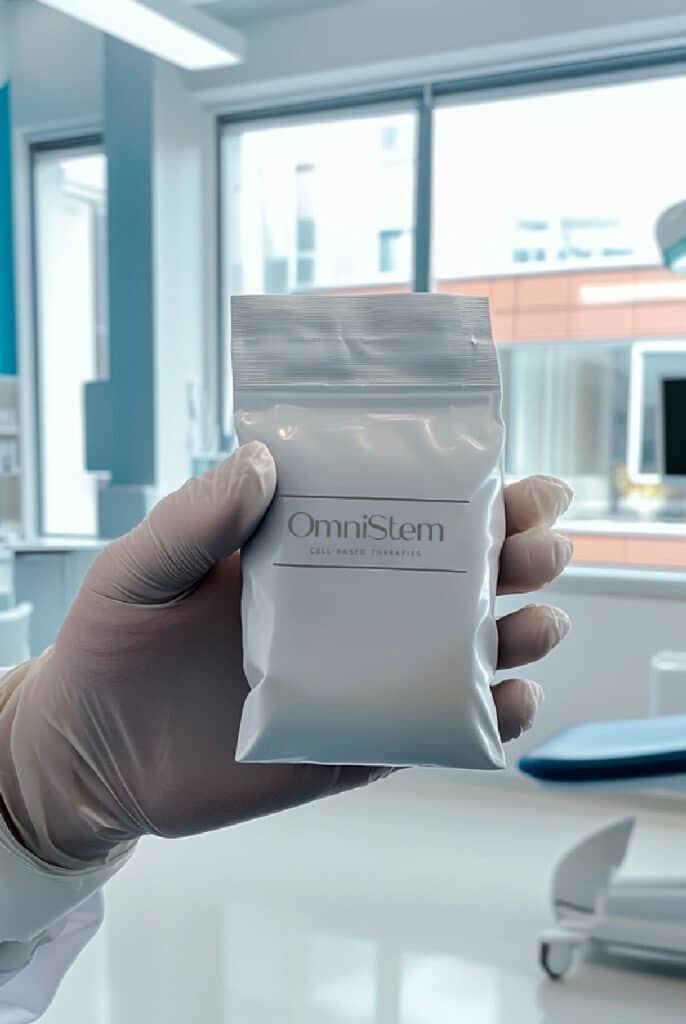
OmniStem Cell-based Therapies
Frequently Asked Questions
Please explore our Resource Center for helpful information. If you have any additional questions, feel free to contact our patient care team for assistance.
Umbilical cord mesenchymal stem cells (U-MSCs) are a type of adult stem cell found in Wharton’s jelly, a gelatinous substance within the umbilical cord. These cells have the ability to differentiate into various cell types, such as bone, cartilage, and fat cells, making them highly valuable for regenerative medicine and cell therapies.
Exosomes are microscopic, sac-like vesicles naturally released by cells, containing a rich payload of proteins, RNA, and other biomolecules essential for cellular communication and repair. Typically 30–200 nanometers in size, these extracellular vesicles play a pivotal role in maintaining and restoring cellular health.
At OmniStem, we harness the therapeutic potential of exosomes derived from umbilical cord mesenchymal stem cells (U-MSCs). These exosomes act as messengers, delivering regenerative signals to damaged tissues to support healing and reduce inflammation.
U-MSC stem cell treatments are considered specialized and are generally not covered by insurance plans.
U-MSC-derived allogenic stem cell therapies are currently not allowed in the U.S.
While mesenchymal stem cells (U-MSCs) have received FDA approval, the FDA does not permit the expansion of allogenic stem cells. As a result, patients undergoing these therapies in the U.S. typically receive a limited number of cells, which may reduce the potential benefits, including the use of U-MSC-derived exosomes.
At OmniStem, we use a safe and controlled laboratory process to expand these cells, enabling us to administer tens of millions of U-MSCs and U-MSC exosomes to our patients. This approach significantly enhances treatment outcomes.
This is a key reason many individuals travel to countries like Colombia, Panamá, Mexico, and the Dominican Republic to seek recognized providers of the most advanced regenerative medicine biologics available.
Our main facilities are located in the city of Pereira, in Colombia. We have specialized clinics and application centers for stem cell treatments that comply with all biosafety protocols and the highest safety standards. Pereira is the capital of the Colombian coffee region, one of the wonders of tourism in the country, and a World Heritage Site declared by UNESCO.

